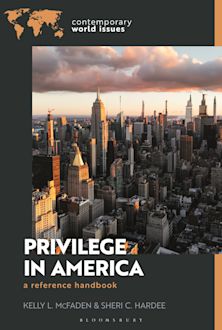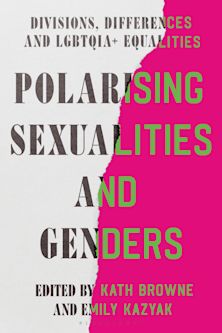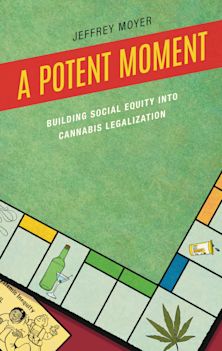- Home
- ACADEMIC
- Sociology
- Sociology of Inequality and Social Divisions
- Reimagining Civic Education
Reimagining Civic Education
How Diverse Societies Form Democratic Citizens
Reimagining Civic Education
How Diverse Societies Form Democratic Citizens
This product is usually dispatched within 2-4 weeks
- Delivery and returns info
-
Flat rate of $10.00 for shipping anywhere in Australia
You must sign in to add this item to your wishlist. Please sign in or create an account
Description
This volume surveys the new global landscape for democratic civic education. Rooted in qualitative researc, the contributors explore the many ways that notions of democracy and citizenship have been implemented in recent education policy, curriculum, and classroom practice around the world. From Indonesia to the Spokane Reservation and El Salvador to Estonia, these chapters reveal a striking diversity of approaches to political socialization in varying cultural and institutional contexts. By bringing to bear the methodological, conceptual and theoretical perspectives of qualitative research, this book adds important new voices to one of educationOs most critical debates: how to form democratic citizens in a changing world.
Table of Contents
Chapter 1 Civic Education in Two Worlds: Contestation and Conflict over the Civic in School and Community on the Spokane Indian Reservation
Part 2 Not Just for Kids: Adults as Citizens in Learning/Challenging Democracy
Chapter 2 Reformasi, Civic Education and Indonesian Secondary School Teachers
Chapter 3 Democratic Pentecost in El Salvador? Civic Education and Professional Practice in a Private High School
Part 3 States Forming Citizens: Policy and Cultural Contestation
Chapter 4 Curricular Intervention and Greek-Cypriot Pupils' Constructions of Citizenship: Can 'Europe' Include Immigrants?
Chapter 5 Education for Democracy: The Text and Context of Freire's Circles of Culture in Brazil
Chapter 6 Examining Peripheries of Substantive Democracy in Lithuania From the Teachers' Point of View: Intended and Unintended Outcomes of the Financial Reform in Education
Chapter 7 Developing Citizen Leaders for Democratic Governance in South Africa
Chapter 8 Citizenship Education in the 'New Europe': Who Belongs?
Chapter 9 The Politics of the Holocaust in Estonia: Historical Memory and Social Divisions in Estonian Education
Chapter 10 Forming and Implementing A New Secondary Civic Education Program in Mexico: Toward a Democratic Citizen without Adjectives
Chapter 11 The Emergence of Global Citizenship Education in Japan
Chapter 12 Intercultural and Global Meanings in the Australian Secondary Curriculum: Between Critical Contestations and Minimal Constructions
Product details
| Published | 25 Dec 2006 |
|---|---|
| Format | Paperback |
| Edition | 1st |
| Extent | 320 |
| ISBN | 9780742547568 |
| Imprint | Rowman & Littlefield |
| Dimensions | 231 x 149 mm |
| Publisher | Bloomsbury Publishing |
About the contributors
Reviews
-
This volume brings together researchers who enrich the discourse about citizenship education in numerous ways: they cross disciplines, expand pedagogical models, encompass studies on both the young and the old, and report on a wide range of countries.
Judith Torney-Purta, professor of human development, University of Maryland
-
A well written, topically balanced, analytically inclusive, and stylistically accessible work that adds much to the literature of global citizenship education and general comparative and international education. It should benefit students and scholars in education and in the general social sciences, and it could be used as a primary or supplementary textbook in both advanced undergraduate and graduate classes. It should also achieve a wide public readership, and with the widening discussion around the topic, this book will present a selectively reliable interpretation of the newly emerging discourses in the case.
Comparative Education Review
-
The contents and methods to develop democratic citizens are as varied as the understandings of democratic citizenship itself. Reinmagining Civic Education for a Changing World provides a timely and important contribution to the study of citizenship education and political socialization. With its impressive international scope, careful examination of the particularities of local cultures and actors, and a comprehensive approach that includes formal and non-formal educational settings as well as policy analysis, this book reinvigorates the field and appeals to a wide audience.
Daniel Schugurensky, University of Arizona



































